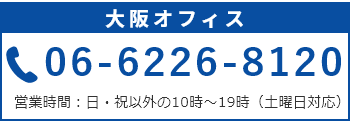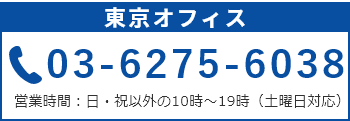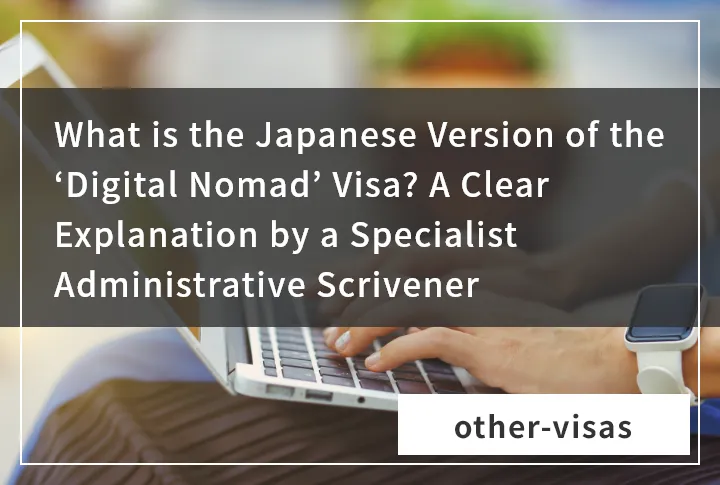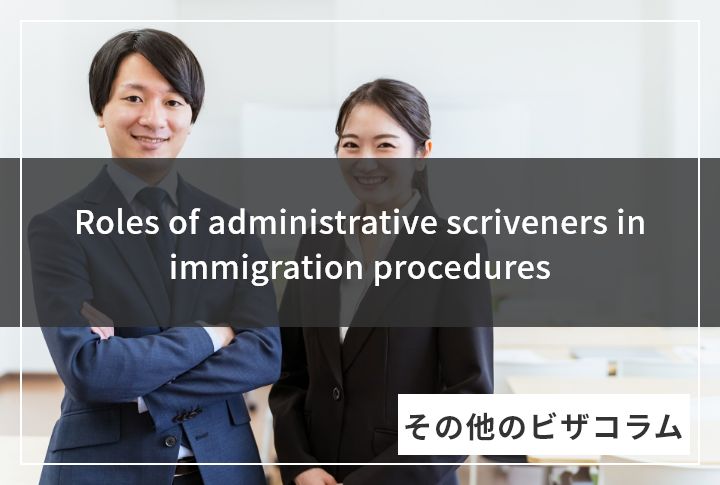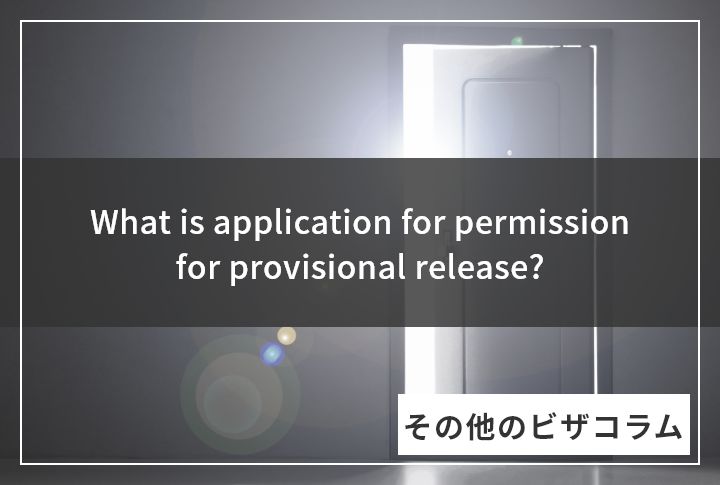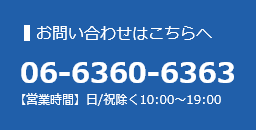How to invite a parent with a Designated Activities (elderly parent support) visa
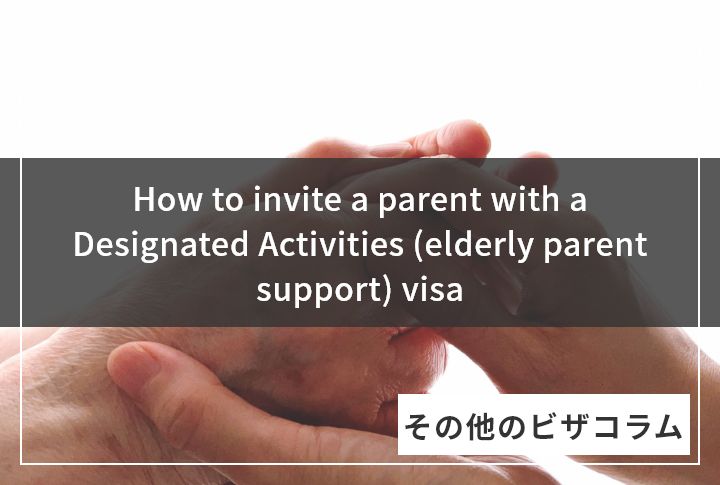
Worrying about parent is universal.
That concern increases as parent gets older.
On this page, we will explain about the Designated Activities (elderly parent support) visa, which is often consulted.
Index
1. What is a Designated Activities (elderly parent support) visa?
A Designated Activities (elderly parent support) visa is a visa that allows you to bring an elderly parent who has no relatives to Japan and live with them.
When you live in Japan, it is difficult to rush to your home country immediately if your parent get sick or injured. All human beings suffer from physical ailments as they age. If it’s your own parent, you’ll be even more worried.
Therefore, a visa that allows parent living in their home country to come to Japan and live in Japan for a long time is called a Designated Activities (elderly parent support) visa.
2. Reasons why it is difficult to obtain the Designated Activities (elderly parent support) visa
The Designated Activities (elderly parent support) visa is said to be much more difficult than other visas.
This is because the Immigration Control Act does not stipulate visas for calling parent.
For humanitarian reasons, the Designated Activities (elderly parent support) visa introduced on this page is exceptionally permitted when parent is brought over.
By the way, elderly parent support visa is classified as the Designated Activities visas.
There is no actual visa called “elderly parent support visa”.
Unlike other visas, the Designated Activities visa entrusts the details of the activity to the designation of the Minister of Justice.
There are two types of this Designated Activities visa, which are categorized into “Designated Activity Notification”, which the Minister of Justice assumes in advance, and “Non-notification Specific Activity”, which does not assume activity in advance.
Typical examples of Designated Activity Notifications are Working Holidays and Internships, there is a list of them because they are called “Notices”.
However, the Designated Activities (elderly parent support) visa falls under the category of Non-notification Specific Activity, is a visa that is “Outside” the “Notice”, and is not stipulated in the Immigration Control Act.
Designated Activity Notification
| No.1 | Domestic servants of diplomats and consular officers |
| No.2 | Domestic servants such as Highly Skilled Professional and managers |
| No.3 | Taiwan-Japan Relations Association office staff in Japan and their families |
| No.4 | Staff of the Palestinian General Mission to Japan and their families |
| No.5 | Working holiday |
| No.6 | Amateur athlete |
| No.7 | Spouse or child of an amateur athlete |
| No.8 | Foreign lawyer |
| No.9 | Internship |
However, if it is not stipulated in the Immigration Control Act, it is not possible to obtain a visa at all is not occur.
Considering individual circumstances, there are cases which foreigners who need to stay in Japan can obtain visas even if they have not been notified.
In other words, even in cases that are not stipulated in the Immigration Control Act, there are cases which visa permission is obtained when the Minister of Justice permits residence due to humanitarian or other special circumstances.
Now, let’s take a look at the requirements for the Minister of Justice to allow a person to stay in Japan due to humanitarian or other special circumstances regarding the Designated Activities (elderly parent support) visa.
In addition, there is a preferential treatment for those staying in Japan with the status of residence of Highly Skilled Professional No. 1 or No. 2, in which they can invite their parent to take care of children under the age of 7, however for those who are concerned about their parent’s health and wish to be brought over, there are restrictions on the acquisition of Highly Skilled Professional and age limits for children.
Please refer to the following page for preferential treatment for Highly Skilled Professional visa.
>> Click here for Highly Skilled Professional visa conditions
3. Practical Requirements for the Designated Activities (elderly parent support) visa
In what cases is a Designated Activities (elderly parent support) visa approved?
Here, we will introduce the practical requirements for a Designated Activities (elderly parent support) visa.
(2) No relatives in home country or third country
(3) It is difficult for the child to live in his/her home country.
(4) The household of the supporting child must have the ability to support the parent.
(1) to (3) can be rephrased as the need to live in Japan.
Considering the necessity separately,
(1) “Can parent really live alone?”
(2) “Can’t other relatives take care of your parent?”
(3) “Do parent need to come to Japan?”
That’s about it.
When applying for a Designated Activities (elderly parent support) visa, it is important to fully assert and prove the necessity of such matters in order to obtain permission.
If you take a deeper look, if you want to bring your parent to Japan with a period of stay of 1 year and you want to bring your parent, proof of (3) becomes important.
If you do not show that the person in Japan is an important job or position, and strongly prove that you cannot go to the country where your parent lives and that you cannot do it unless you are in Japan, you will be evaluated as not settling in Japan.
In this respect, by comparison, people with permanent residence visas and naturalized people are more likely to be evaluated for their ability to settle in Japan.
(4) means the acceptability of living in Japan.
In order to be approved for the Designated Activities (elderly parent support) visa, it is necessary that the parent does not have the ability to support him/herself, so if the parent decides to live in Japan, the living expenses must be borne by the dependent child.
The dependent child must have an income to support the livelihood if one more person is added to the current household size.
In addition, the ability to support is not only based on money, but also on the actual time spent together.
Parent can’t live alone and call him/her to Japan, but after coming to Japan, if the child is away from home for a long time due to work, they cannot rush to the emergency.
In addition to the overall requirements, an important point for the Designated Activities (elderly parent support) visa is the age of the parent when calling to Japan.
In the past, it was possible to get a Designated Activities (elderly parent support) visa if he/she was 65 years old or older, but as the population ages and medical care advances, more and more people are working even after the age of 65, and the standard age has risen.
Therefore, under current practice, if there are no special circumstances such as being unable to work due to illness, it is difficult to obtain a Designated Activities (elderly parent support) visa if the person is under the age of 70.
4. Q&A about the Designated Activities (elderly parent support) visa
A: If you have both parents in your home country, it does not fall under (2) (no relatives in your home country or third country) explained above.
Therefore, it must be said that it is difficult to obtain a Designated Activities (elderly parent support) visa if both parents are able to live together.
Although the hurdle for permission is bigger than usual, there are cases where permission for a Designated Activities (elderly parent support) visa was granted depending on the health condition of the parents.
A: Even if you have a stable economic base in Japan, it is difficult to say that humanitarian consideration is necessary based on that fact alone.
In particular, if the parent is living by his/herself in his/her home country, it is difficult to call him/her with a Designated Activities (elderly parent support) visa.
A: I can’t say for certain that people under the age of 70 are not allowed at all, but the current situation is extremely strict. It is necessary to make a comprehensive judgment on other circumstances, so please consult with us once.
A: There is no standard for this disease to allow a Designated Activities (elderly parent support) visa.
Based on past cases, it is difficult to get an evaluation that you cannot support yourself only due to aging such as high blood pressure and joint pain, when obtaining a Designated Activities (elderly parent support) visa.
A: If you have parents and siblings in your home country, it is necessary to verify whether your parent’s siblings can support your parent.
Of course, most of them are siblings of elderly parents, so they are also very old.
When applying for a Designated Activities (elderly parent support) visa, if there are such circumstances, it is necessary to prove it properly.
A: The Designated Activities (elderly parent support) visa is a summons for the reason that the parent cannot live alone.
Despite this, it lacks credibility to develop business in Japan just because that application for a Designated Activities (elderly parent support) visa was rejected.
There is no problem if the purpose is to truly engage in management activities, but in the example you asked about, it is not realistic in many cases, so we do not recommend applying for a Business Manager visa.
5. Cases of solutions for the Designated Activities (elderly parent support) visa
We would like to introduce three cases of the Designated Activities (elderly parent support) visa obtained by our company.
Consultation from Mr. A, who has a strong tendency to settle in Japan.
This was an inquiry from Mr. A, who got married in Japan and became a Japanese citizen after naturalization.
According to the story, Mr. A’s mother is currently 72 years old and is unable to work due to her health condition. In addition, her husband passed away several years ago, and she has no other relatives in her home country.
Mr.A’s concern was that it would take time for rushing to her home in an emergency.
As for (3) (difficult for the child to live in the home country) explained in the requirement part, Mr. A had been naturalized, so it was not difficult to prove the settlement in Japan, but (1) (parent is incapable of supporting him/herself.) where we put particular effort into proving it.
As people get older, they experience some discomfort in some part of their bodies.
We asserted and proved it based on objective materials.
Eventually, the Immigration Bureau approved that she could not live alone, and Ms. A’s mother was able to successfully obtain permission for a Designated Activities (elderly parent support) visa.
Consultation from Mr. B who wants to call his father who has an intractable disease.
Mr. B married a Japanese person while working in Japan, had a child, and lived in Japan with her family.
In his home country, there was only his father and his father’s brother, and there was no one to look after his father.
When we heard the story, his father lost his wife 2 years ago and is now 76 years old. Since he has an intractable disease, Mr. B wanted to take care of his father nearby.
Mr. B’s father had been in and out of the hospital several times due to an intractable disease, and we asked him to obtain the documents from that time.
In addition, in order to show how the patient’s condition will change in the future, the progress and condition of the patient with the same disease name will be submitted to the Immigration Bureau as reference materials to prove that is difficult for Mr. B’s father to live alone.
As a result, Mr. B’s father got permission for a Designated Activities (elderly parent support) visa, and now they are able to live together in Japan.
Consultation from Mr. C who has a mother with dementia.
As with other people, Mr. C’s mother also lived in the distance, and was contacted by a child that was worried about it.
Her memory became worse as her loneliness became intense, and she gradually became even unable to remember the ATM password.
When we talked to him, she was in a very dangerous situation, like taking the wrong prescribed medicine by mistake.
Mr. C was taking care of mother in such a situation while working and raising his children with time differences of 5 hours.
Mr. C’s mother had brothers and sisters, but everyone lives outside the country other than home country and is nearly 90 years old, so he couldn’t ask for care.
It was inevitable that only Mr. C could rely on.
In this case, we proved that there was no relatives and the mother’s chronic condition, but we also claimed and proved that it was difficult due to the work of Mr. C, because Mr. C could be able to travel to his home country.
Furthermore, since Mr. C was a researcher, he got cooperation by his boss and authority, as the importance of his position, and the impact of Mr. C’s absence on the development of Japan, we submitted it together with to the Immigration Bureau as the need to enter the country.
And we were able to get the permission of a Designated Activities (elderly parent support) visa.
This Designated Activities (elderly parent support) visa was a case that felt that the cooperation with the people around was sometimes important, not only for parents and children.
6. Summary of the Designated Activities (elderly parent support) visa
In this page, we explained the points of the Designated Activities (elderly parent support) visa with examples that we have helped.
As explained in practical requirements, the Designated Activities (elderly parent support) visa to call parent has no clear requirements, and it has been left to a wide discretion of the Minister of Justice, so it is positioned that very difficult in practice.
The Designated Activities (elderly parent support) visa can give an environment where can live with peace of mind as the best filial piety for your father and mother.
We would be very happy if everyone’s worries were reduced even a little through this page and became a clue to the solution.
We are consulting for the Designated Activities (elderly parent support) visa for free, so please feel free to contact us, Daiichi Sogo Office.



